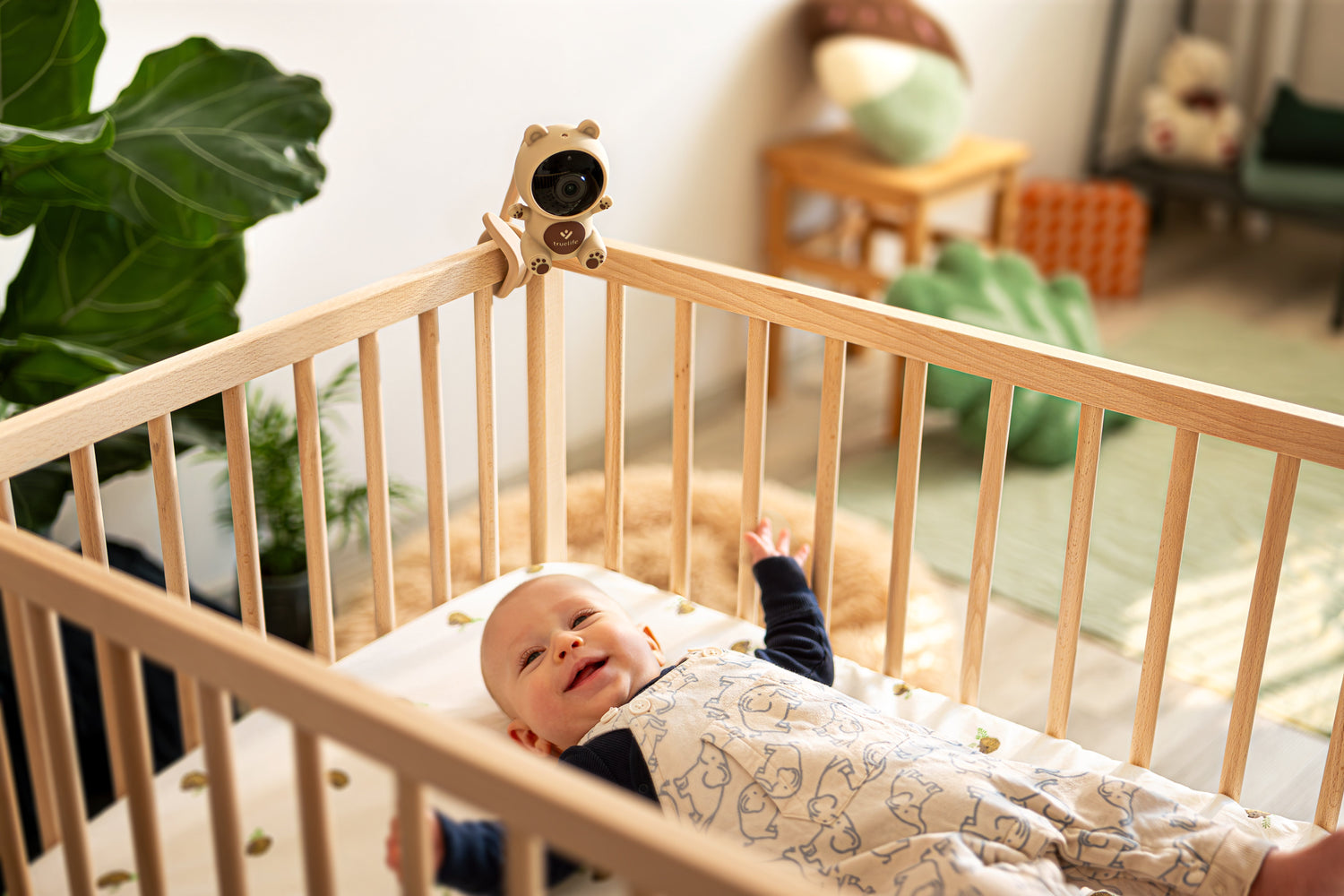When a baby is born, a new world full of joy—and worries—arrives with them. Every parent wants to be sure their child is well cared for while also enjoying moments of peace. A baby monitor is one of the most practical tools that really pays off in your daily routine.
But how do you choose the right one? There are many types and features on the market that look similar at first glance. The key is to think about the situations in which you will use the monitor most often—and what you actually expect from it.
Every family has different needs
There is no one-size-fits-all solution. Parents living in an apartment need a different monitor than those with a house and garden, and different again for parents who travel frequently.
1. For parents in an apartment
If you live in a smaller apartment, you don’t need a monitor with extreme range. A stable connection and clear sound are more important.
- The Truelife NannyTone VM3 is ideal — a simple audio monitor with a sensitive microphone that captures every sound from the nursery.
- The VOX mode activates transmission only when sound is detected, saving battery and keeping your peace of mind.

2. For parents in a house or with a garden
Here, a monitor with longer range and reliable signal across multiple floors is useful.
- TrueLife NannyCam V24 Pro or TrueLife NannyCam R3 Smart can transmit over hundreds of meters and provide high-quality real-time video.
- With night vision, you can see your child even in complete darkness without disturbing them with light.

3. For parents who travel often
If you take the monitor on the go, you’ll appreciate compact size, long battery life, and easy setup.
-
The TrueLife NannyCam V24 offers stable video, two-way communication, and a clear menu.
- Just plug it in, place the camera by the crib, and within a minute, you can see and hear your baby wherever you are.

4. For parents who need night monitoring
If your baby wakes often at night, choose a model with night vision and a temperature sensor.
- TrueLife NannyCam S3 Smart monitors room temperature and alerts you if it gets too hot or cold.
- Night mode automatically switches to infrared vision, so you can see your baby without any light.

5. For parents who want constant connection
- Some Truelife monitors offer two-way communication—so you can not only hear your baby but speak to them too.
- When your baby wakes, you can soothe them with your voice without getting out of bed.
- This small feature can save many sleepless nights.
Other factors to consider
- Signal range: Do you need to monitor across two floors or outdoors?
- Display size: The larger, the clearer the image.
- Power supply: Do you prefer adapter, battery, or a combination?
- Extra features: Thermometer, night light, lullabies, ability to connect multiple cameras.
When it’s worth investing more
- Higher-end models offer not only better image quality but also greater peace of mind.
- If you want reassurance day and night, it’s worth investing in a monitor with more features.
- Quality technology makes monitoring easier and lets you go about your day knowing your baby is safe.
Conclusion
Choosing a baby monitor should reflect your daily routine, home size, and lifestyle. When you pick one based on your real situation, it becomes a quiet ally, giving you a little more peace every day.



